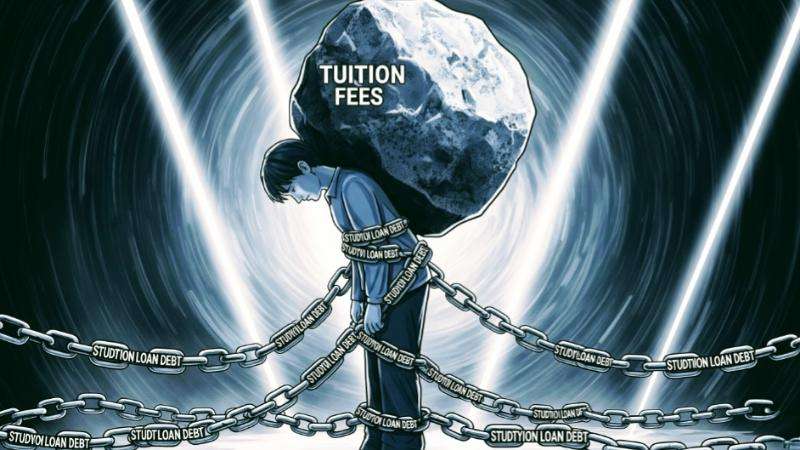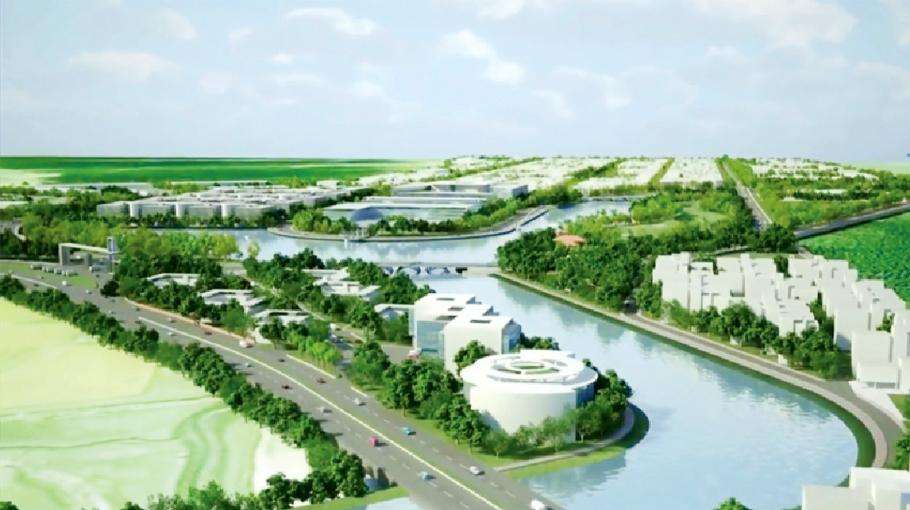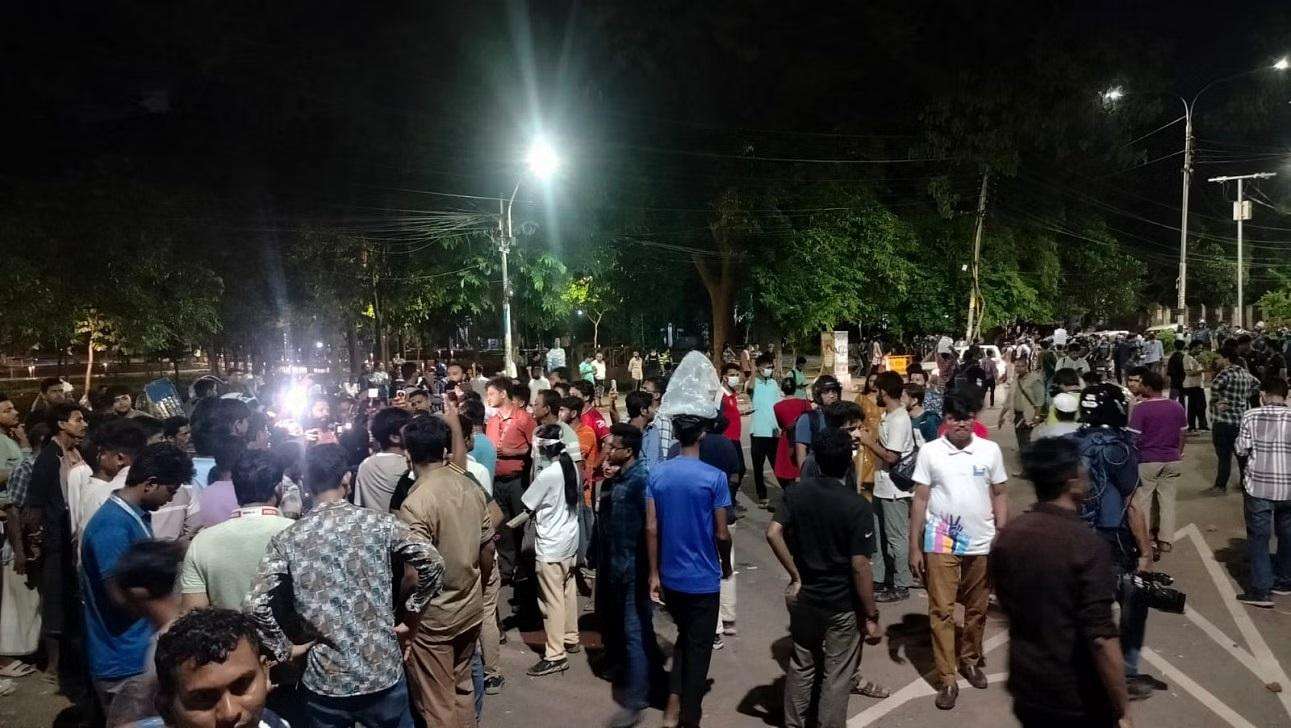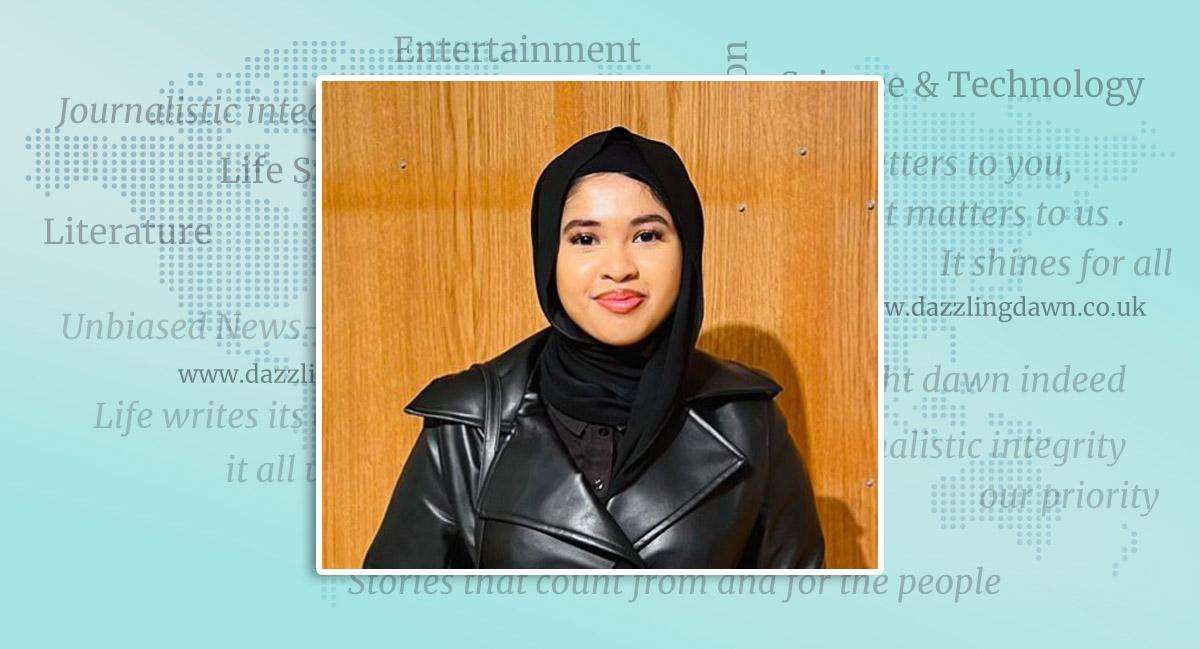Japanese entrepreneurs and businessmen are going very slowly with new investment proposals in Bangladesh as the country’s investment policy seems inconsistent with the situation getting complicated after the National Board of Revenue (NBR) withdrew some incentives in the current budget, sources said.
National Board of Revenue (NBR) in its June 6 budget proposal withdrew some incentives triggering irritation among foreign investors in the economic processing zones (EPZs) and later reinstated some incentives.
Bangladesh will come out of the least developed country (LDCs) in November 2026 and will have gradually cut incentives to enter the export market.
To attract foreign direct investment (FDI), successive governments in the past gave special incentives to foreign investors and entrepreneurs to invest in the EPZs.
Sources said fewer numbers of Japanese investors and entrepreneurs have shown interest to invest in the EPZs during the six months of the current calendar year.
Prime Minister of Bangladesh Sheikh Hasina on December 6, 2022 inaugurated the operation of the Japanese Economic Zone in Bangladesh Special Economic Zone (BSEZ) at Araihazar in Narayanganj district on the outskirts of the capital.
The prime minister virtually opened the economic zone from her official residence, Ganabhaban, in the capital.
The economic zone was expected to lure investment of over US $1.5 billion once it goes into full operation while it has generated employment of over 100,000 people initially.
The vision to establish an EZ dedicated to Japan began in 2014, when Prime Minister Sheikh Hasina visited that country.
Japan International Cooperation Agency (JICA) undertook the initiative to conduct the feasibility study in 2016. Later in 2019, Sumitomo Corporation from Japan inked the deal with the Bangladesh Economic Zones Authority (BEZA) to develop the BSEZ.
This correspondent exchanged views with some Japanese investors in recent times who expressed their views on going very slow on new investment proposals in the Japanese Economic Zone in Bangladesh Special Economic Zone (BSEZ) at Araihazar in Narayanganj district, sources said.
Japanese entrepreneurs and businessmen are going very slowly with new investment proposals in Bangladesh as the country’s investment policy seems inconsistent with the situation getting complicated after the National Board of Revenue (NBR) withdrew some incentives in the current budget, sources said.
National Board of Revenue (NBR) in its June 6 budget proposal withdrew some incentives triggering irritation among foreign investors in the economic processing zones (EPZs) and later reinstated some incentives.
Bangladesh will come out of the least developed country (LDCs) after 2026 and will have gradually cut incentives to enter the export market.
To attract foreign direct investment (FDI), the successive governments in the past gave special incentives to foreign investors and entrepreneurs to invest in the EPZs.
Sources said no Japanese investors and entrepreneurs have shown interest to invest in the EPZs during the six months of the current calendar year.
Prime Minister of Bangladesh Sheikh Hasina on December 6, 2022 inaugurated the operation of the Japanese Economic Zone in Bangladesh Special Economic Zone (BSEZ) at Araihazar in Narayanganj district on the outskirts of the capital.
The prime minister virtually opened the economic zone from her official residence, Ganabhaban, in the capital.
The economic zone was expected to lure investment of over US $1.5 billion once it goes into full operation while it has generated employment of over 100,000 people initially.
The vision to establish an EZ dedicated to Japan began in 2014, when Prime Minister Sheikh Hasina visited that country.
Japan International Cooperation Agency (JICA) undertook the initiative to conduct the feasibility study in 2016. Later in 2019, Sumitomo Corporation from Japan inked the deal with the Bangladesh Economic Zones Authority (BEZA) to develop the BSEZ.
This correspondent exchanged views with some Japanese investors in recent times who expressed their views on going very slow on new investment proposals in the Japanese Economic Zone in Bangladesh Special Economic Zone (BSEZ) at Araihazar in Narayanganj district, sources said.
Meanwhile, Japan Ambassador in Dhaka Iwama Kiminori last year said that Bangladesh should improve the macro-economic stability and reform the taxation system in a bid to attract Japanese investment.
Terming the tax system in Bangladesh as cumbersome that needs to be simplified and improved, Iwama Kiminori said letter of credit (L/C) settlements should be resolved quickly as lingering the process increases the cost of business.
Iwama Kiminori the international investors including Japanese ones are looking at the macro-economic stability of Bangladesh that is passing through a challenging period.
He mentioned that the country's forex has dropped in recent times, which creates problems in opening of L/C.
Iwama Kiminori said that Bangladesh and Japan have successfully elevated the bilateral relations to a "Strategic Partnership" from the existing "Comprehensive Partnership".
The Japan envoy has said Bangladesh needs to take two key steps to address the challenges it is likely to face after its LDC graduation in 2026.
According to him, Bangladesh must first improve its investment and business environment to attract more Japanese companies as they may not consider it an investment-friendly destination otherwise.
Meanwhile, Myung-Ho Lee, immediate past president of the Japan-Chamber of Commerce and Industry (JBCCI), said Japanese entrepreneurs and businessmen are now considering Bangladesh as new destination of investment.
In 2023, Myung-Ho Lee said that continuation of the existing industrial policy is important in the context of attracting Japanese investment in Bangladesh.
He said that the tax policy should be similar in case of Bangladeshi and Japanese businessmen and concerned authorities should ensure that in the greater interest of wooing Japanese investment.
Myung-Ho Lee said that Bangladesh should improve its business environment, remove bureaucratic tangles and impart timely decisions to lure Japanese investment on a large scale.
According to the data of Bangladesh Bank (BB), Bangladesh attracted foreign direct investment (FDI) worth 3 billion US dollars in 2023 calendar year. Bangladesh attracted 3439.63 million US dollars in 2021-22 Fiscal year with Japanese FDI recording at only 122.72 million. Japan held the ninth position in terms of attracting FDI in Bangladesh (3.6 per cent of total FDI).
He mentioned that Japanese entrepreneurs consider neighboring countries in South Asia and Southeast Asia the better lucrative places to put their money that shows the latter ensures a congenial environment.
According to available reports Japanese investment even in neighboring Myanmar is several times higher than it is in Bangladesh.
Myanmar has approved $3.8 billion in foreign investment in FY 21. China was the top investor in Myanmar with only one Japanese firm alone investing $516.4 million in the ASEAN country, according to a report of Reuters.
With a gradual drop in the population of Japan, Bangladesh should develop mid- and long- term strategies to tap the labour market of G-7 country as the Asian economic power requires increased foreign to maintain momentum of the economy of the G-7 country, said economists, Bangladesh Association of International Recruiting Agencies (BAIRA) leaders and top policy makers.
Japan’s immigration authorities last month proposed expanding the scope of a blue-collar skilled workers visa that effectively allows holders to stay in the country indefinitely in a possible major shift in its foreign labor policy.
The move comes in response to calls from the business community seeking to secure human resources amid an ongoing labor shortage and will increase the number of sectors that can be upgraded to the Specified Skilled Worker No. 2 status from two to 11, according to KYODO NEWS, a leading Japanese newspaper.
Saudi Arabia was the top destination of Bangladeshi workers with 612,418 workers (over 53.92 per cent of the market share), followed by Oman with 179,612 workers (15.81%), UAE with 101,775 workers (8.96 per cent), Singapore with 59,131 (5.75%), Jordan with 12,110 workers (1.18 %), Qatar with 24,447 (2.15 %), Kuwait with 20,422 workers (1.73%), Italy with 7594 workers (0.67%), Japan 508 (0.04 % ) and the UK with 942 workers (0.08%), according to BMET data.
_1.jpg)
.jpg)






.svg)


